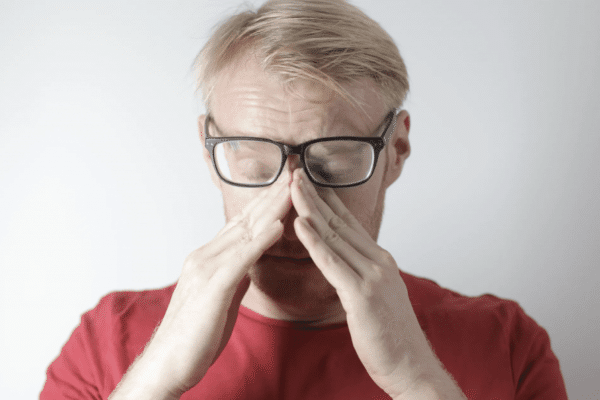All You Need to Know About Benzodiazepines

As a family member, friend, or work colleague of somebody with an addiction, you likely don’t know as much about the drugs they consume as they do. It can be hard to find honest facts about benzodiazepines and opioids that are not designed to scare. In this article, we want to answer some of the most common questions you have. Whilst we offer a rehabilitation clinic, we want to offer an impartial resource for you to learn.
It is important to note that not all drugs are bad if taken in the proper dosage for medical reasons. The recreational use of pharmaceuticals or the mixing of substances can lead to serious health risks. If you notice a loved one that does not follow their prescription then you should refer to the health warnings.
What is a Benzodiazepine?
A benzodiazepine is a class of psychoactive drugs that are often called ‘benzos’. These are prescription drugs that often have serious side effects when taken with alcohol. They often treat symptoms such as anxiety, depression, tremors, seizures, and epilepsy.
Not every drug is the same so it is important to know what benzodiazepines are used for, and whether you have the right prescription. You should also look for health advice and whether you can mix with other substances.
- Alprazolam is used for agoraphobia and depressive disorders, with the common brands including Xanax and Niravam.
- Chlordiazepoxide is used for anxiety, alcohol withdrawal symptoms, and tremors, with the most common brand being Librium.
- Diazepam is used for anxiety, muscle spasms, and seizures, with the common brands including Valium and Diastat.
- Lorazepam is a sedative that is used for anxiety and seizure disorders, with the most common brand being Ativan.
- Clonazepam is used for anxiety, panic disorders, and seizures, with the most common brand being Klonopin.
- Oxazepam is used for anxiety, anxiety with depression, and alcohol withdrawal symptoms, with the most common brand being Serax.
- Temazepam is used for insomnia, with the most common brand being Restoril.
Long Term Effects of Benzodiazepines
Whilst there are continued studies into this class of drug, there are already large volumes of research available. Whilst the short-term use of these drugs is generally considered to be safe, a lot of the physical, mental and social side effects are associated with long-term use.
The long-term side effects of benzodiazepines include drug dependency and adverse cognitive function or deterioration in physical or mental health. Many users that are prescribed this class of drugs experience the following symptoms:
- Paranoia
- Depression & Suicidal Ideation
- Impaired Memory
- Poor Coordination
- Poor Judgement & Decision Making
The simultaneous use of alcohol and most benzodiazepines can cause slow breathing and potentially death; you should avoid use with alcohol at all costs. If you are pregnant and prescribed benzodiazepines then you should consult with a doctor for medical advice.
How Do Benzodiazepines Work?
Many concerned family members often ask how do benzodiazepines work, in a step to understanding the addiction. By itself, short-term use of benzodiazepine is not harmful and works by enhancing neurotransmitters in the brain. In particular, the affected transmitter is called Gamma Amino Butyric Acid (GABA) and controls emotions, memory, thinking, and coordination.
The GABA neurotransmitters are released from brain cells via electrical signals and occur naturally. The main purpose of this transmitter is to calm overexcited neurons that lead to anxiety or fear. If left unchecked these overexcited neurons can manifest in panic attacks and lead to tremors or seizures. This is the main reason why benzodiazepines are good in short-term therapy.
What Are the Symptoms of Benzodiazepine Withdrawal?
Since this drug is used as a sedative for exciting neurons within the brain, the main symptoms manifest as increased anxiety, sleep disturbance, panic attacks, tremors, headaches, nausea, and weight loss.
Since the withdrawal of benzodiazepine often leads to the return of prior conditions, it is rarely used as a long-term prescription. Whilst it is possible to have a dependency on these drugs for medical reasons, many doctors will only do so where necessary. An example of a good application is during detox to reduce anxiety, tremors, insomnia, or panic attacks. Once the therapy is completed, a slow reduction in dosage can lead to a stable recovery.
Frequently Asked Questions
The above questions are the most popular and pressing questions, but we often receive more nuanced queries. This section aims to address some of those concerns and is frequently updated to include the most recent inquiries from patients and their supporters. If you have any questions not listed above or below, then please feel free to message our team directly by using our contact page and we will look to add your concerns here in the future if there is high demand.
Is Heroin a Benzodiazepine?
No, heroin is not a benzodiazepine and should not be used in conjunction. Heroin is an opiate that is classed as diamorphine. It is not used medically for pain relief and withdrawal from other opioids. If you or your family member are currently using heroin or other opioids for symptom relief, then please seek advice from our heroin detox team. This drug is naturally addictive and can help you monitor these symptoms.
Is Tramadol a Benzodiazepine?
No, tramadol is not a benzodiazepine and is most commonly used for pain relief or analgesia. Due to its highly addictive properties, this drug is used for moderate to severe pain relief and is rarely prescribed without medical supervision. The most common brands of this controlled substance include Ryzolt, Ultram, and ConZip. If you or your family member are taking this without supervision then you should contact us immediately. This is a highly addictive drug that can cause serious dependency. If taken with alcohol the symptoms are severe and often fatal.


